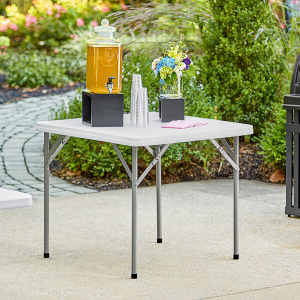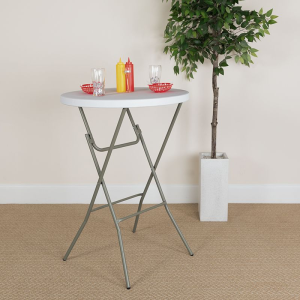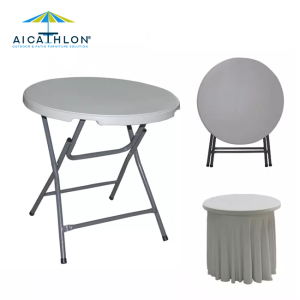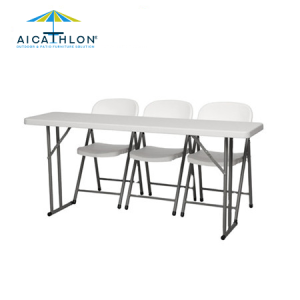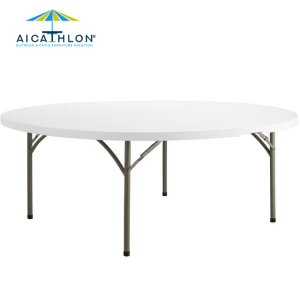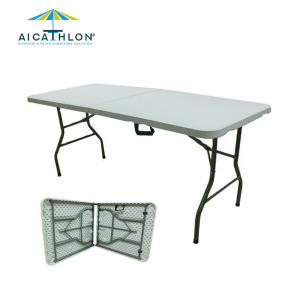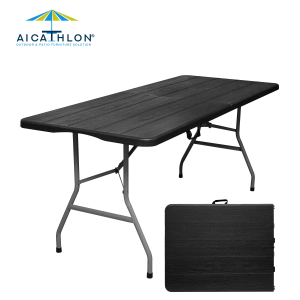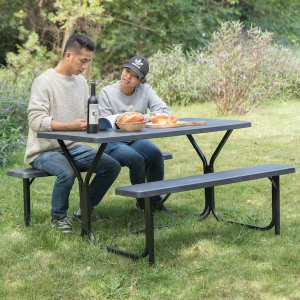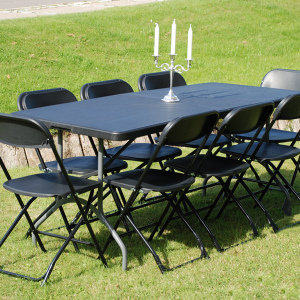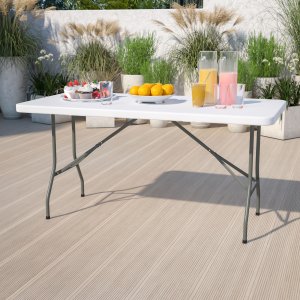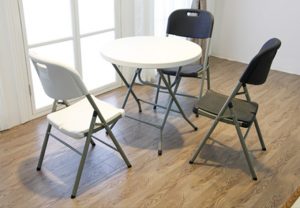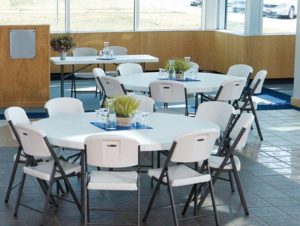More
Unveiling the Thickness of Plastic Folding Tables: Striking the Perfect Balance
Unveiling the Thickness of Plastic Folding Tables: Striking the Perfect Balance
Introduction
Plastic folding tables have become a ubiquitous furniture choice for their convenience, versatility, and ease of use. As these tables cater to a wide range of applications, their thickness plays a crucial role in determining their durability, weight-bearing capacity, and overall performance. In this blog post, we will explore the thickness of plastic folding tables, considering how different thicknesses impact their stability, portability, and suitability for various settings.
-
Standard Thickness: A Balance of Durability and Portability
The thickness of plastic folding tables typically varies depending on the intended use and manufacturing standards. In most cases, standard plastic folding tables have tabletops with a thickness ranging from 1.5 inches to 2 inches (3.81 cm to 5.08 cm). This thickness strikes a balance between durability and portability, making these tables suitable for both residential and light commercial use.
-
Heavy-Duty Applications: Thicker for Increased Strength
For heavy-duty applications, such as commercial events, trade shows, or banquets, plastic folding tables with thicker tabletops may be preferred. These heavy-duty tables often have a thickness ranging from 2.5 inches to 3 inches (6.35 cm to 7.62 cm). The increased thickness provides added strength and load-bearing capacity, ensuring stability when supporting heavier items or equipment.
-
Lightweight Options: Thinner for Easy Portability
On the other end of the spectrum, there are lightweight plastic folding tables designed for enhanced portability. These tables usually feature thinner tabletops, with a thickness ranging from 1 inch to 1.25 inches (2.54 cm to 3.18 cm). The reduced thickness results in a lightweight design, making these tables ideal for outdoor activities, picnics, or camping trips.
-
High-Density Polyethylene (HDPE) vs. Blow-Molded Tables
The thickness of plastic folding tables can also be influenced by the manufacturing process and the material used. High-density polyethylene (HDPE) tabletops are often thicker than blow-molded tabletops. HDPE tabletops are solid and durable, and their thickness contributes to their sturdiness. Blow-molded tabletops are hollow, making them lighter and more portable, with a thinner profile.
-
Impact on Stability and Weight-Bearing Capacity
The thickness of the tabletop directly impacts the stability and weight-bearing capacity of plastic folding tables. Thicker tabletops offer increased strength, allowing the table to support heavier loads without sagging or bending. This is especially important for commercial events or activities where the table may be subjected to rigorous use.
-
Practical Considerations
When choosing a plastic folding table, it’s essential to consider the intended use and practical requirements. Thicker tabletops are ideal for heavy-duty applications or when a sturdy surface is necessary. Thinner tabletops provide easy portability and are suitable for temporary setups or on-the-go activities.
Conclusion
The thickness of plastic folding tables plays a significant role in determining their durability, stability, and portability. Standard plastic folding tables strike a balance between durability and portability, making them suitable for various settings. Heavy-duty tables with thicker tabletops offer increased strength for commercial applications, while lightweight options with thinner tabletops are ideal for outdoor activities and easy transportation. Understanding the impact of thickness allows users to choose the perfect plastic folding table that meets their specific needs and provides a reliable surface for a wide range of activities.


